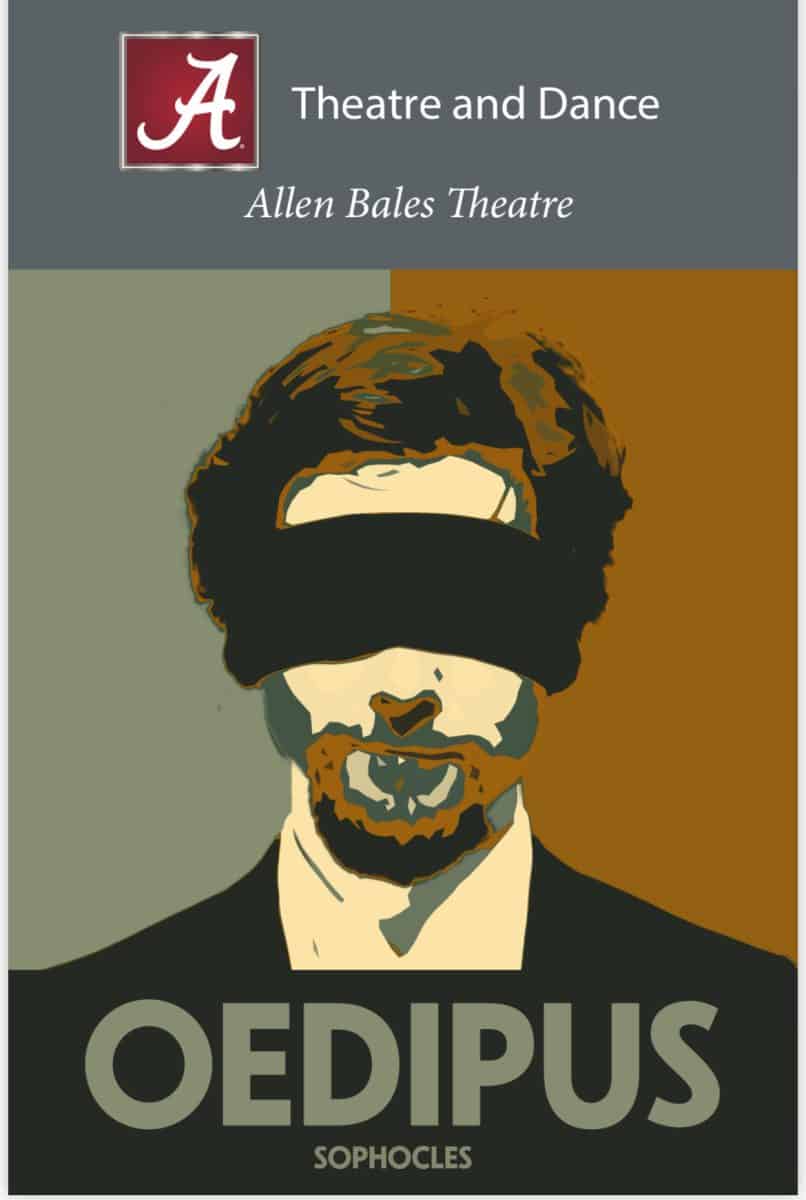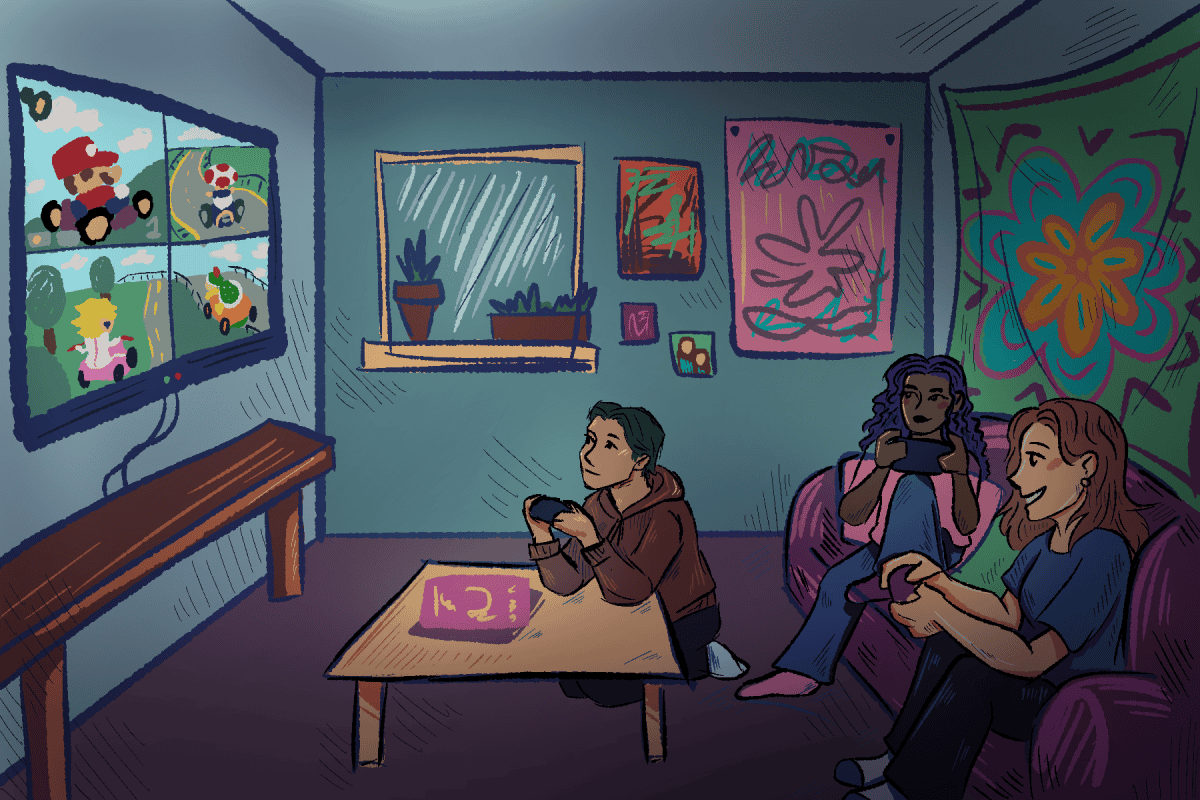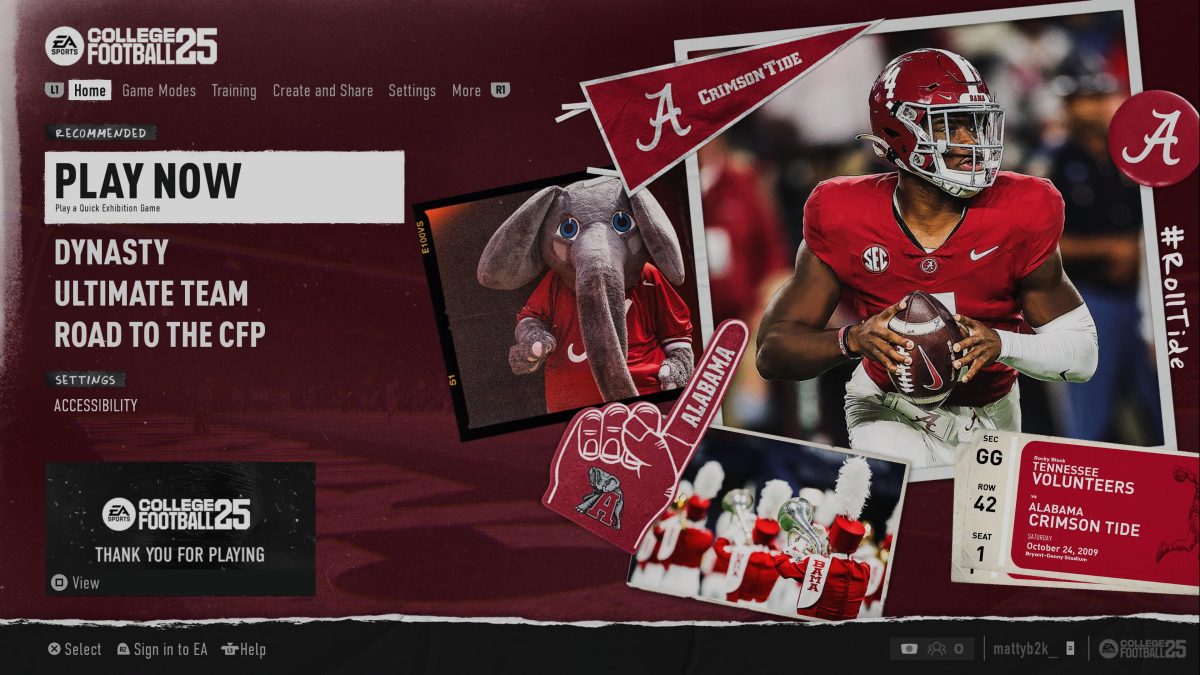“Oedipus,” or “The Riddle Solver,” premiered at the Allen Bales Theatre on Feb. 6 and showed until this Sunday, Feb. 11. Directed by the first Black student director in the UA theater department’s history, Benny Lumpkins Jr., the production adapted and reimagined the Greek play for the 21st-century audience. The production was about an hour and 30 minutes long.
Lumpkins, a first-year Master of Fine Arts directing student, told a classical story in a new and exciting way to make it more colorful and interesting. The characters were dressed in bright colors and in an eccentric fashion. There were dance numbers that propelled the story forward and opportunities for the audience to engage with the cast members, before and during the play.
Because the version of “Oedipus” that Lumpkins found was in the public domain, he had almost complete creative freedom. He felt the show needed an extra element because he didn’t believe it made sense for Oedipus not to notice a resemblance between him and his wife, who would later be revealed to be his biological mother.
“Walking down the street in downtown Memphis, you could pick out who was going to the Erykah Badu concert because of the way they dressed,” Lumpkins said. “They created this tribe of people.”
He said he noticed similar bizarre fashion for fans going to see the musical “Six.”
“My first inspiration was to have it be nonbinary, trans characters in the show,” Lumpkins said.” It made more sense in my head.
Along with that, he decided to have the actors dressed in ostentatious clothes after having gone to a Erykah Badu concert.
His version of “Oedipus” took place in an apocalyptic future, featuring a touring circus group who happen to run into an audience. The cast members are aware of the audience’s presence throughout the production. A circus master, the leader of the group, sits the tribe down and begins telling the story of King Oedipus of Thebes.
While audience members might have been expecting a story with archaic English that’s hard to understand, the language was modified to be more modern.
Teresa, a prophet and servant of Apollo who comes to warn Oedipus of his fate, is sassy and hilarious, almost stealing the show the first night. Oedipus speaks in a Shakespearean way but the prophet is plain and snaps back when the king questions her loyalties and intentions.
Lumpkins said Teresa was made specifically to connect with the Black audience.
“She is an Auntie-like character that was pivotal part of the show,” Lumpkins said.
Black inspirations were so embedded in the show because Lumpkins felt it was important to give Black people representation unrelated to stories of trauma.
“As the first Black director in this program at the school I want to be the face of the show,” Lumpkins said. “I want to be the face of a changing directing department. I want people in the audience that look like me to know that they can do it too.”
For more information about future UA theater and dance productions, visit the department’s website.













